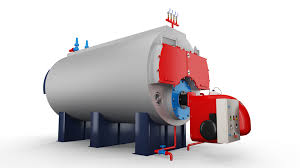Industrial Electric Hot Water Boiler Price Guide and Specifications
The Cost Analysis of Industrial Electric Hot Water Boilers
In the realm of industrial heating solutions, electric hot water boilers are increasingly gaining popularity due to their efficiency and relatively lower environmental impact compared to fossil fuel-based systems. Understanding the price structure of these units is crucial for businesses and manufacturers aiming to implement or upgrade their heating systems. This article delves into the pricing dynamics associated with industrial electric hot water boilers.
Initial Investment and Cost Factors
The initial cost of an industrial electric hot water boiler largely depends on various factors, including the unit's capacity, brand reputation, and additional features. Generally, smaller units may start at around $3,000, while larger, more advanced systems can exceed $30,000. The capacity, measured in kilowatts (kW), directly correlates to the boiler's output and efficiency. Businesses should assess their specific heating needs to determine the appropriate unit size, as opting for a system that's too large or small can lead to inefficiencies and unnecessary costs.
Operational Costs
While the upfront cost is critical, operational costs also play a significant role in the overall pricing picture. Electric hot water boilers have lower operational costs than their gas or oil counterparts due to the stable price of electricity compared to fluctuating fossil fuel prices. Additionally, electric boilers usually have fewer moving parts, resulting in less maintenance and lower repair costs over their operational lifespan.
industrial electric hot water boiler pricelist

Energy Efficiency and Incentives
Energy efficiency ratings, often expressed as Annual Fuel Utilization Efficiency (AFUE), are vital indicators of a boiler’s performance. Higher efficiency ratings generally result in lower energy bills, which can offset the initial investment over time. Many governments and energy providers promote energy-efficiency initiatives, offering incentives such as rebates or tax credits for businesses that invest in high-efficiency equipment. These financial incentives can significantly reduce the effective price of an electric hot water boiler, making it a more attractive option over time.
Market Trends and Future Pricing
Pricing trends for industrial electric hot water boilers are influenced by several market factors, including raw material costs, manufacturing advancements, and changes in regulatory standards. As industries shift towards more sustainable practices, the demand for electric boilers is anticipated to rise, potentially leading to a more competitive market. This growing demand can drive innovation, leading to more efficient models with integrated technologies that may initially cost more but can deliver substantial savings in the long run.
Conclusion
In summary, the price of industrial electric hot water boilers encompasses a multifaceted approach that includes initial capital expenditure, ongoing operational costs, energy efficiency, and governmental incentives. While the upfront investment may seem significant, the long-term savings and environmental benefits position electric hot water boilers as an appealing choice for many industries. For businesses looking to enhance their heating solutions, understanding the pricing structure and the factors influencing it is essential for making an informed decision. Investing in an electric hot water boiler not only improves operational efficiency but also aligns with a sustainable future.
-
High-Efficiency OEM Steam Boilers w/GPT-4-TurboNewsAug.02,2025
-
Advanced Electric Steam Boiler Manufacturers | GPT-4 Turbo AINewsAug.01,2025
-
Custom Steam Boilers Manufacturer | AI-Enhanced EfficiencyNewsJul.31,2025
-
Top Electric Steam Boiler Makers | AI-OptimizedNewsJul.31,2025
-
Top Electric Steam Boiler Manufacturers - High Efficiency SolutionsNewsJul.30,2025
-
Top Electric Steam Boiler Manufacturers – Efficient Industrial SolutionsNewsJul.29,2025

